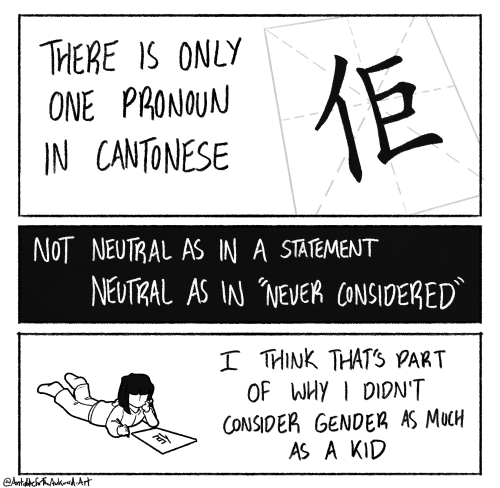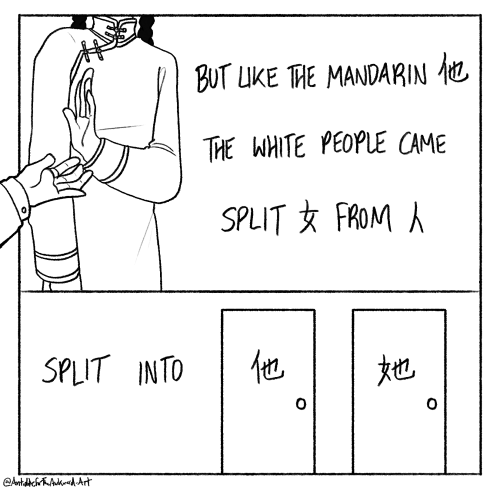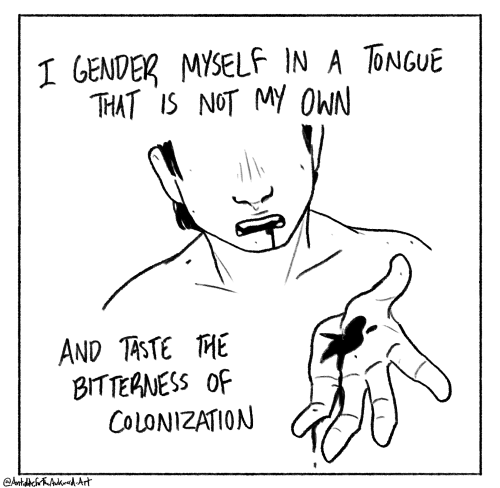vio-nerdlet:took-hold-of-nothing:antidotefortheawkward-art:Thoughts on the gendering of Chinese pron
vio-nerdlet:took-hold-of-nothing:antidotefortheawkward-art:Thoughts on the gendering of Chinese pronounsFor anyone who want to know more!!! 佢 = 亻巨 (keoi5)亻means 人 personShe/He/They (singular) = 佢 They(plural) = 佢哋E.g.She is right = 佢喺啱嘅They(plural) are right = 佢哋喺啱嘅Her/His/their = 佢嘅E.g.Her book = 佢嘅書 Their (plural) book = 佢哋嘅書Her/Him/Them = 佢E.g. It’s Her! = 喺佢呀!It’s them(plural)! = 喺佢哋呀!oh we also use 佢 for It tooE.g. It looks beautiful (about, like idk, a cake or a bug) = 佢睇落好靚I always love that mid-conversation “hold up, 佢係仔定囡嚟㗎” (wait, are [they] a man or a woman) because it doesn’t have to happen if it’s the anecdote that matters and it becomes *really* obvious if someone wants to know the gender of that person in question.And also the tendency of canto to refer to people in a gender neutral way, eg 嗰個人 (that person), which is equal to saying “that man/woman/guy/girl” in English… If saying “that person” in English seems to stand out with a less-than-casual tone, then the tonal equivalent in Cantonese is 嗰個女人、嗰個男人 (that woman, that man): implicitly it means to draw attention that the person’s gender matters in the discussion we’re carrying forward (and in certain tone it is meant to sound derogatory!) Of course while we’re on Cantonese… we can’t forget about the vulgar variants/swears XD嗰條友 (友 jau2 in this context, lit. equivalent to 佢, not vulgar but generally considered rude in polite society; a sign of closeness if used among friends though)嗰條茂里 (茂mau6 里 lei2 that idiot)嗰個仆街 (仆puk1 街 gaai1 - [when used as noun] vulgar expletive for someone who has done a lot of bad things / someone with bad character)So if you say someone is 正仆街嚟嘅 (an absolute pk), who cares if that person is a he/she. They 仆街 is all you have to know (laugh) -- source link
Tumblr Blog : antidotefortheawkward-art.tumblr.com


